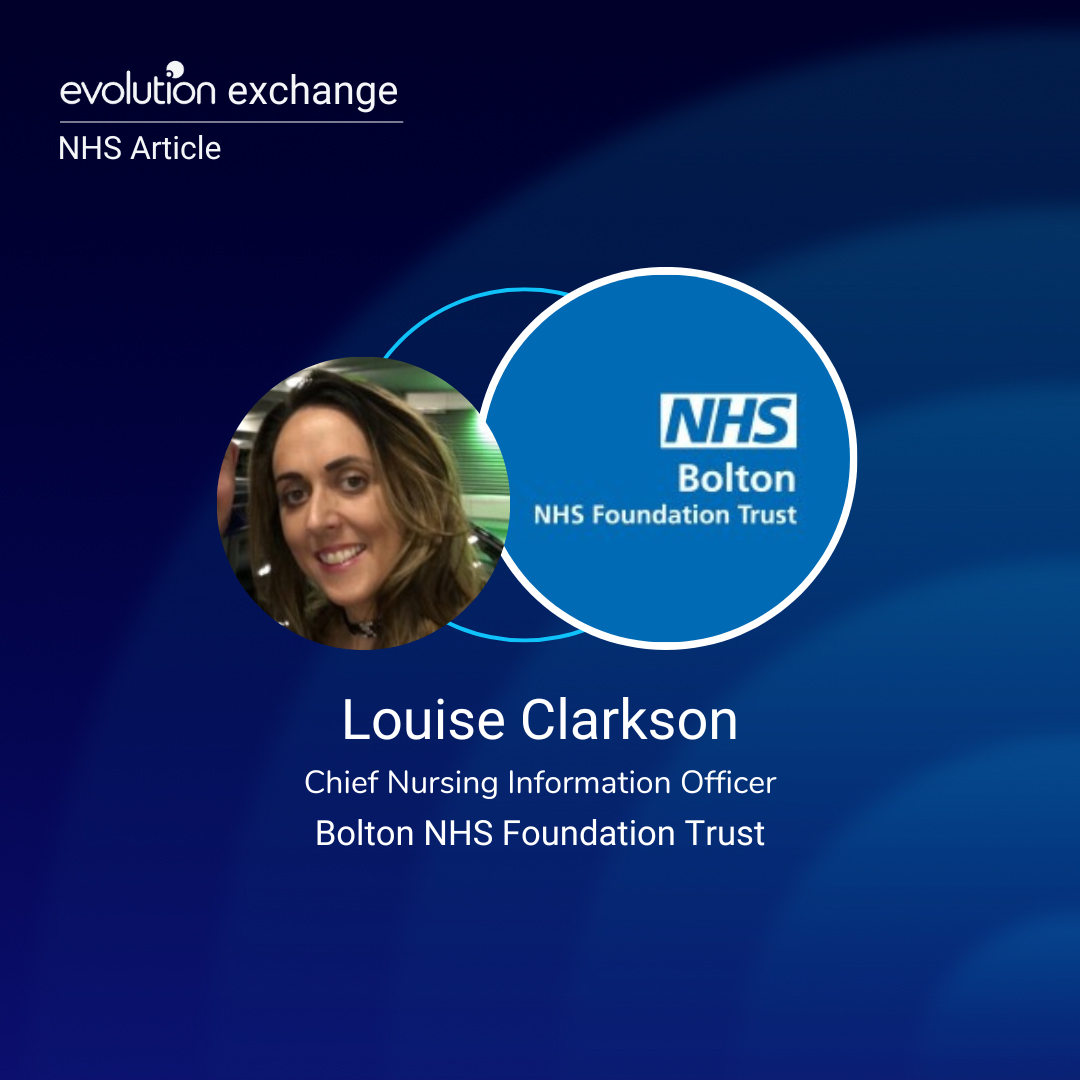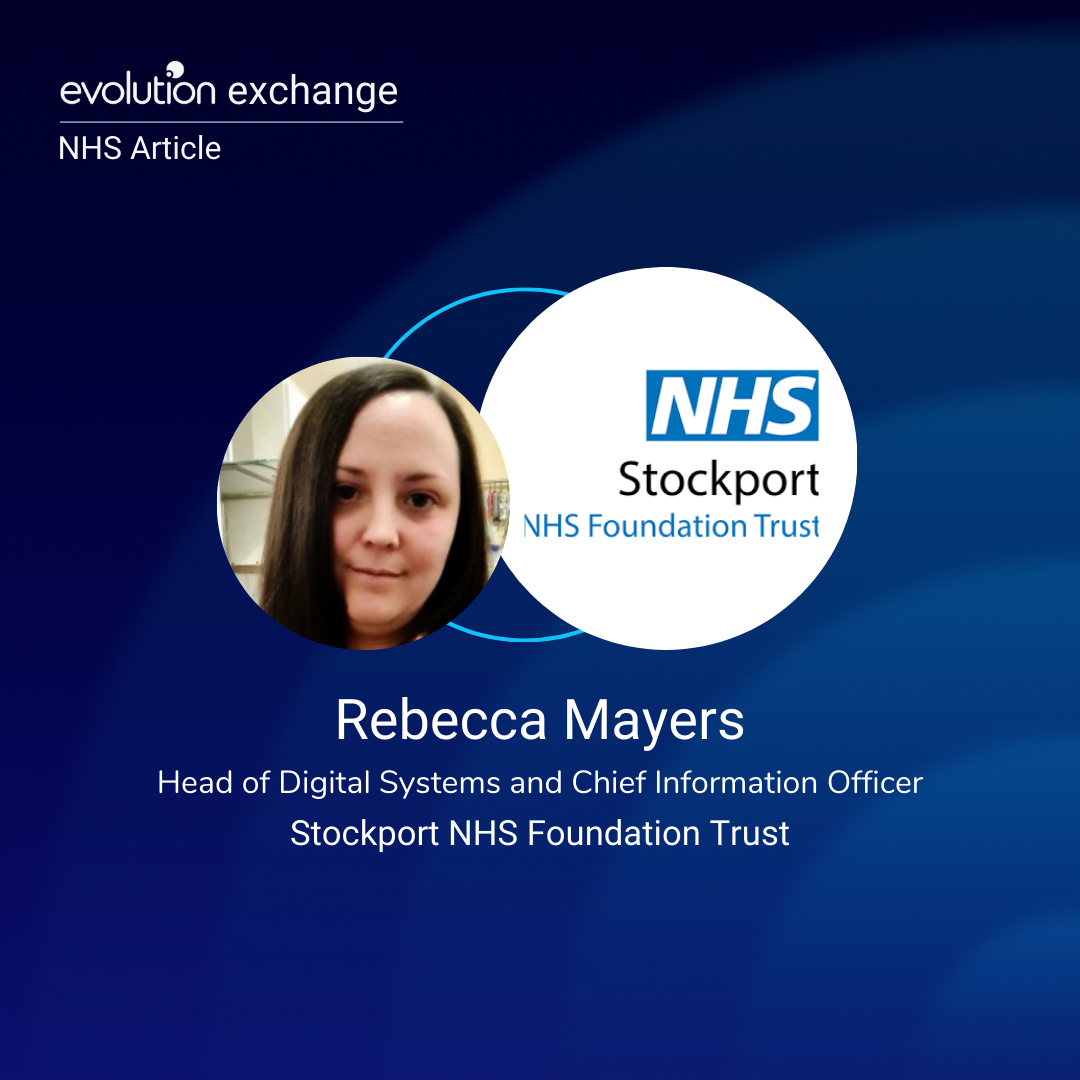Ian Hogan first embarked on his NHS journey 27 years ago, joining the organisation in an entry level digital role. His curiosity and aptitude for technology marked him as a candidate with potential, though at the time he could hardly have imagined the varied leadership positions that lay ahead.
Over nearly three decades, Ian progressed through a multitude of increasingly senior digital and IT positions. This enabled him to gain expansive exposure to diverse areas of the health service. He reflects, “I’ve been fortunate enough to progress through a multitude of roles and developments and opportunities to eventually get to the position that I am now.”
Ian worked across primary, secondary and tertiary care settings. He also experienced different specialised areas like mental health, public health, and acute care. This gave him firsthand insight into the many roles that make up the NHS workforce – from clinicians and nurses to porters and volunteers. He engaged with patients from all walks of life, and collaborated with specialists ranging from Health Care Assistants to Board Directors.
Cultivating Curiosity and Active Listening
As Ian took on more senior positions, he learned an important lesson about knowledge gaps. When leaders progress in their roles, they often lose touch with technical details and specialty expertise. Though senior executives provide guidance and strategy, they rely heavily on managers closer to the frontlines. Ian realised that success requires actively seeking input from others.
He explains, “It’s really easy, isn’t it? To listen to someone but not actually hear what they’re saying.” Ian emphasises the importance of curiosity paired with engaged, thoughtful listening skills. Rather than pretend to have all the answers, he encourages questions and challenges, even when focused on his own decisions or ideas.
By modelling receptive leadership, Ian empowers his team to speak openly. This exchange of knowledge helps balance out limitations in his own expertise. Adopting this mindset enabled Ian to lead digital strategy across diverse health settings, even when lacking experience in a particular area.
Calling Out Unacceptable Behaviours
In Ian’s view, everyone should feel empowered to speak up if they witness unacceptable behaviours in the workplace. However, he notes that it can be difficult to call out more senior staff and colleagues. There are fears of not being heard, or even retaliation.
Ian comments, “It’s really difficult to do it to more senior people because there’s that insinuation around whether it be whistleblowing or bullying culture.” But he believes these conversations are essential to shift entrenched attitudes and improve organisational culture.
When giving feedback to those in higher positions, Ian suggests framing it as curious questions. For example, “Have you thought or have you tried to think about things in this context?” He finds this approach opens a dialogue rather than provoking defensiveness. Ian advises, “Outright confrontation doesn’t resolve anything.”
Though challenging, Ian feels the potential collective benefits make it worthwhile to call out concerning behaviours respectfully. Silence allows problems to continue and even risk normalising them. With courage and the right framing, feedback can spark learning and growth at all levels.
Overcoming Imposter Syndrome with Openness
When asked if he has experienced imposter syndrome, Ian readily admits he has, more often than he would like. For him, imposter feelings can act as a trigger to build skills and knowledge. But they also reflect the influence of work culture and environment.
Ian believes imposter syndrome is a universal experience when taking on new unknowns. In his view, leaders who deny ever struggling with self-doubt may fail to understand what imposter syndrome really entails. They confuse it with general nerves or anxiety. In fact, imposter syndrome often creates intense anxiety by making people feel chronically out of their depth. Admitting vulnerabilities takes courage but builds trust and connectivity.
Ian reflects, ” I think there are times where we all lack confidence.” He notices growing uncertainty and emotional strain since the COVID-19 pandemic. By opening up, Ian believes leaders can validate these feelings and provide reassurance.
Promoting Allyship and Human Connection
For Ian, allyship in the workplace involves sharing purpose and providing moral support. But there is also an element of openness to other perspectives, especially those different from your own. He aims to offer the same guidance and access that senior NHS leaders gave him early on. Though his technical skills have moved into strategy, Ian retains a humble willingness to keep developing.
Ian states, “Everybody can be a leader. Leadership isn’t defined by pay grade.” Status does not determine whether someone can demonstrate leadership qualities and allyship.
Ian believes the connections and care allies provide are critical for mental health in particular. After the shared trauma of the pandemic, retaining a spirit of friendship and humanity matters more than ever. Though the NHS workforce is under pressure, taking time to listen and connect is invaluable.
Advice on Cultivating an Ally Culture
For Ian, leadership and allyship boil down to building trusting human relationships. He believes we can all connect more meaningfully by embracing humility, moral support, and mutual learning. Simple daily actions like truly listening enable people to feel valued, included and empowered to reach their potential.
In Ian’s varied 27 year NHS career, he cultivated priceless lessons about breaking down barriers and bringing people together. Though the organisation’s technical landscape evolved enormously, human needs remained constant. From his first role supporting doctors with newfangled “computer” things, to leading digital strategy across entire health systems, he kept learning.
Each step of Ian’s journey offered opportunities to form allies and mentors. By progressively paying forward the guidance he received, Ian organically nurtured an allyship culture. Both as NHS leader and ally, he steadfastly believes in amplifying all voices. His mission now focuses on spreading those values through the mental health field and beyond.




























